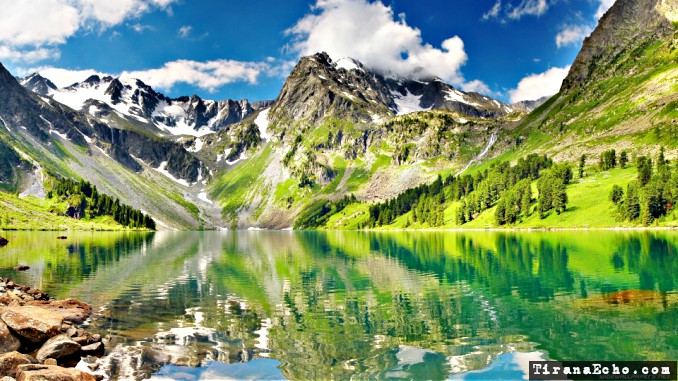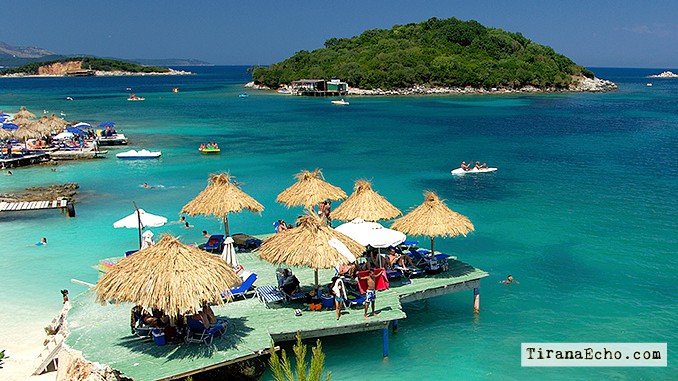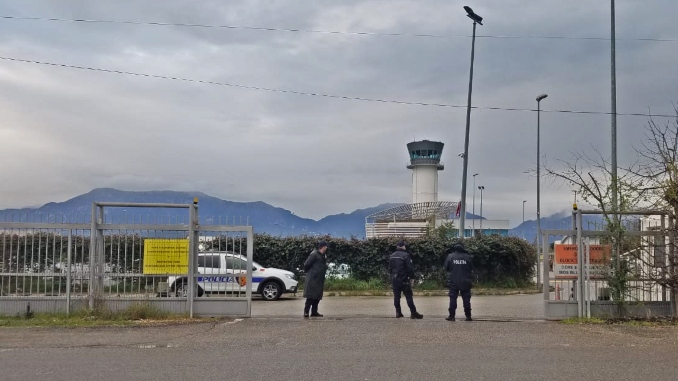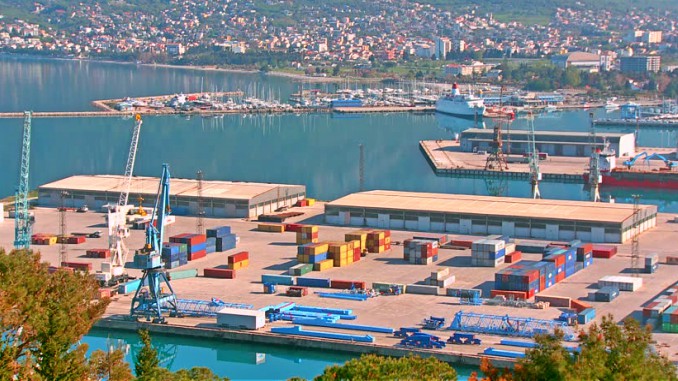SINGAPORE — When it comes to holidays, most of us would make do with the occasional trip to Bangkok and a staycation here or there — and even those are luxuries for some. But a number of Singaporeans have set their sights on the most far-flung destinations they can think of, and truly made travel a priority in their lives.
Matthew Goh, who works as a marketing executive, left jobs twice so he would have enough time to travel through South America and The Balkans.
Tan Wee Cheng is an accounting lecturer who was bitten by the travel bug early on, and is now well on his way to visiting all the countries in the world. Kelly Cheng, who works in marketing and communications, has been to more than 60 countries, and looks for unadulterated adventures, leading her to backpack solo through Iran.
The three are part of an online community called SGTravelCafe, made up of a group of about 40 globetrotting individuals who meet once a month.
They are just a few of the Singaporeans seeking travel experiences that transcend the usual tourist snapshot. And all three agree that they have come out the richer for their travels.
“I think the world is a lot more interesting than we think it is, a lot more diverse,” Tan said. And “despite differences, we find that people do have similar aspirations. They want a good life for themselves and their families.”
Cheng added: “As you travel, you get to understand different perspectives. It sets you thinking. I think that’s very important, instead of assuming your own view is the only view. That, I think, is the power of travel.”
THE OTHERWORLD IN THIS WORLD
Goh, 43, left two jobs in shipping — once in 2007 and once in 2011 — so he could have six months to travel through South America, and also spend two months in the Balkans.
“The first time, I was slightly apprehensive because I didn’t know how long I would be unemployed. The second time, I felt less so because by then, I had made more contacts so I knew I could count on the people in my network for referrals,” he said. “I was a bit concerned because local employers don’t really take too kindly to large gaps in your work life, but of course, I had to take the risk because it’s a once-in-a-lifetime thing. I mean, for South America, it’s not really practical to travel there for two or three weeks and then come back because it’s costly and the land mass is big. So, I took the risk to take some time out and see what I’d longed to see all these years, such as the Iguazu Falls and Machu Picchu.”
Coming back to reality did not hurt all that much either, since he felt he had made enough time to experience all that he wanted to.
“You feel a sense of comfort when you come back to your familiar environment. I didn’t really long for more because I had already dedicated a time frame to travel,” he said.
Currently a marketing executive for a shipping line, Goh, who is single, takes advantage of every public holiday and long weekend to go on trips. His most recent trip, in November, was to Cape Town, and incorporated a safari tour.
Regionally, Indonesia is one of his favourite destinations because of the diversity of its landscapes. And the most exotic place he has been to, he said, is the Salar de Uyuni in Bolivia.
“It’s a massive salt lake that used to be an inland ocean,” he said. “During the rainy season, there’s water on the salt flat, so the sky reflects off the water. It’s quite spectacular. It’s really otherworldly, and you don’t (see anything like it) anywhere else.”
Another otherworldly landscape he found himself in was in Albania. “I think the country being shut off for so long has produced a bit of quirkiness,” he chuckled.
“Their dictator was really paranoid, so he had hundreds and thousands of bunkers built in the countryside to repel the imperialist American invasion he felt was coming. They look like round flying saucers.” He was referring to Enver Hoxha, the communist dictator who led the country from 1944 until his death in 1985.
Goh likes to travel either alone or with friends, but he cautions: “Choose friends who are more laid-back and don’t get so upset when things don’t go right.”
These days, he finds himself more laid back, too.
“As I grow older, I don’t really have to see everything,” he said. “I can just relax, sit in a cafe or go to a market, just to feel the vibe of a place.”
What has all that travelling taught him?
“Not to be so apprehensive,” Goh said. “I went to Syria, before the war. People were saying, ‘Why do you want to go there? It’s the Middle East, terrorism and all that.’ But it’s nothing like that. You have to take precautions and read up on things, but don’t be overly scared. In most places such as Iran or Syria, people still function normally.”
BUCKET LIST ALMOST COMPLETE
Tan, a 47-year-old adjunct associate professor at the National University of Singapore, can say he has visited nearly every country in the world. He is checking them off, one by one, but sometimes loses count.
“Out of 193 United Nations member states, I have been to 181 or 182 — I can’t remember,” he said. He has also travelled to “30 or 40 political entities — places such as Taiwan, which are not member states, and some of the unrecognised states such as Nagorno-Karabakh and Transdniestria, which is on the border of Moldova and Ukraine”, he said.
It is his goal to visit all 196 countries in the world, but he is certainly not obsessing over it — his last trip, about three weeks ago, was a return to Italy to spend time in the picturesque northern part of the country. These days, he focuses his travels on immersing himself in a country’s culture, in contrast to when his wanderlust first started in 1993.
“Upon graduation, before I started work, I went backpacking through western Europe for about two months. I covered about 12 or 13 countries,” said Tan, who is single.
“Now, my travels tend to be a lot more detailed. I want to cover individual countries in greater depth. For example, the year before, I spent almost 1½ months in Turkey, and that was my second or third trip. The year before that, I spent about one month in Peru — and that was my second trip to Peru.”
Although his focus was once a country’s history, he now finds that he has more appreciation for the art and food in each place.
And the countries he has yet to visit “are quite difficult to get to”.
Saudi Arabia, for example, issues tourist visas only to people visiting family or friends. And Equatorial Guinea in Africa does not encourage visitors. Then there are countries such as war-torn Afghanistan and Iraq, he said.
“If there are active safety concerns … I will not go,” he added.
WOMEN TRAVELLING SOLO HAVE MORE FUN
Cheng, a 45-year-old photography enthusiast who works in marketing communications, is a firm believer in travelling solo.
“Some of my most memorable moments have been when I was alone and receiving hospitality from strangers,” she said. For instance, when she spent 18 days backpacking alone in Iran about eight years ago, the strangers she hitchhiked with welcomed her into their homes.
“They were so kind — they offered their beds to me while they slept on the floor,” she said.
“When you stay in (peoples’) homes, that’s when you get to know their real lives. You don’t have to be behind a veil,” she added, saying that the women were fascinated with her — to the point of wanting to touch her hair and various parts of her body in the privacy of their homes. She added that she managed to see an intimate part of Iranian culture, and discover the way the people really live, such as how they eat while sitting on the floor.
She added that as a single woman travelling alone, “of course, there’s the possibility of danger, but sometimes, you just have to trust your instincts about whether someone is a good person or not”.
“You need some guts to do that, I guess. The good thing is that when you’re travelling alone, you tend to engage the locals a lot more. The experience can be so enriching. People are so willing to lend a helping hand. We should not be too cynical about the human race,” she said.
Yemen, where she was invited to participate in a wedding, was another of her favourite destinations. “I feel the Muslim countries are fascinating for women to travel in,” she said. “The men are generally very attentive and nice to you. In Pakistan, they are such gentlemen, especially the army officers. Before they smoke, they ask you for permission.”
Travelling has put life in Singapore into perspective. “When you live in a city, you look at politicians and politics; you’re full of complaints and grievances. How is that going to make you happier with your life? You have to be open to experiencing new things and stepping out of your comfort zone,” said Cheng.
Her extensive travels have naturally deepened her interest in photography.
Peru and Antarctica are among the places in which she felt the most inspired to snap away.
“And it’s grown to be quite a rewarding hobby,” she said of photography. To her surprise, it has even paid off — literally.
“I have almost 3,000 images licensed on Getty, which gives me some passive income that can pay for at least one trip a year — so that’s not too bad!”
Source: Today







